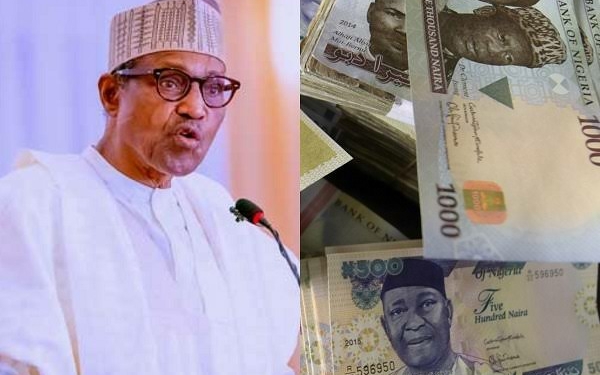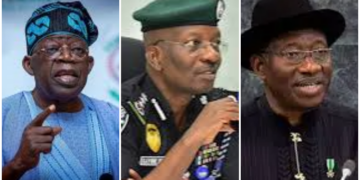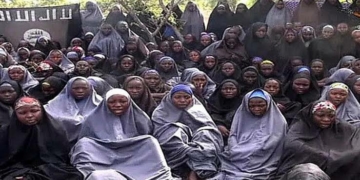The old naira note and the introduction of the new naira have been a major issue raising concerns for policymakers and citizens of Nigeria.
Nigerians had been complaining about the inability to swap their old notes for the new designs, forcing the Central Bank Of Nigeria (CBN) to extend the January 31 deadline to 10 days later.
However, on Wednesday, February 8, 2023, the Supreme Court in a ruling by a 7-member panel led by Justice John Okoro, temporarily halted the CBN’s February 10 deadline for the exchange of the new naira notes with the newly redesigned naira notes.
The ruling was issued by a seven-member panel led by Justice John Okoro, granting the ex parte application brought by three northern states of Kaduna, Kogi, and Zamfara.
In response, the Federal Government in its preliminary objection to the suit, insisted that the Supreme Court lacked the necessary jurisdiction to entertain the suit in the first place. It argued that the agency (CBN), whose Act was being complained about by the plaintiffs, was a statutory body with legal personality that could sue and be sued in its name.
Despite this, the Federal Government said it would obey the Supreme Court ruling that temporarily suspended the February 10 deadline given by the Central Bank of Nigeria (CBN) for the exchange of the old naira notes with the newly redesigned naira notes, a decision that was rejected by the Civil Society Central Coordinating Council.
The apex body of all civil society groups in Nigeria rejected the exparte order made by the Supreme Court restraining the CBN and President Muhammadu Buhari from terminating the use of the old N200, N500, and N1000 bank notes.
The group called on President Buhari to immediately consider issuing Executive Orders to bring to effect the policy terminal date.
According to the group which addressed a press conference in Abuja, the Supreme Court order did not restrain the exercise of the constitutional powers of the President. The Council said their rejection of the order was because it was an attack on credible elections and called on the Supreme Court not to yield its platform for such election riggers to have access to illicit cash to compromise the election.
Can The President Issue An Executive Order Overriding The Supreme Court Judgment?
Within Nigeria spoke to Qudus Alalafia, Head of Chambers, Clemesis Associates, Wuye, Abuja about if the constitutional provision of the President allows him to override the Supreme Court Judgment suspending the February 10 deadline given by the Central Bank of Nigeria (CBN) for the exchange of the old naira notes.
Alalafia noted that the President himself or through the office of the Attorney General of the Federation has a legal duty to obey and comply with an order of that Court directed at him except he immediately exercises the right to appeal against such an order, if dissatisfied with it, adding that the judgment cannot be faulted using a mere executive order.
“Let me start by relying on the judicial authority of NACB v. ACHAGWA (2010) 11 NWLLR (1205) 339 at 367; that a Court of law, a superior Court of record for that matter created by the fountain of all laws in the country, which in this case is the apex court in Nigeria, would and should not make an order in vain, or just as a mere formality to be ignored by the party to whom it was directed to.
“A party ( that’s the President himself or through the office of the Attorney General of the Federation) appears before a Court has a legal duty to obey and comply with an order of that Court directed at him except he immediately exercises the right to appeal against such an order if dissatisfied with it.
“Else, it shall amount to contempt of the courtroom. I took this route simply to affirm the superiority of all courts’ rulings and judgments over any other order or orders from other organs of government.
“The Supreme Court’s Justices did not make such an order under respective administrative powers but rather, made that order as Justices of the Supreme Court after carefully listening to the arguments of parties before them. That alone, cannot be faulted using a mere executive order,” he said
Alalafia noted that the President doesn’t enjoy any constitutional privilege(s) to issue an executive order enforcing the deadline for the validity of the Old Naira Notes.
He said the only available option for the President is to either comply or file an application before the same court to set it aside for whatever grounds he may choose to rely on.
” Don’t also forget that he couldn’t validly appeal against such a ruling because, after the Supreme Court, no other court exists.
“It should be borne in mind that section 4 subsection 8 of the 1999 Constitution, as amended, prohibits law-making of the Federation, that is, the National Assembly, from making any law that purports to oust the Jurisdiction of our Courts in their respective adjudicating business. This doesn’t also preclude the Executive who is even the Chief Enforcing Body of the Federation.” Alalafia noted.



Discussion about this post